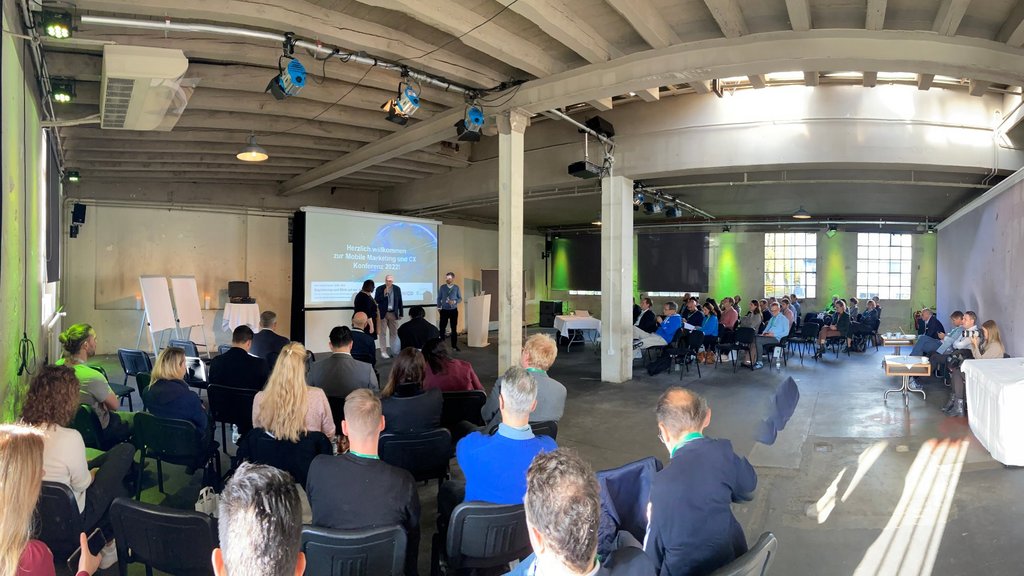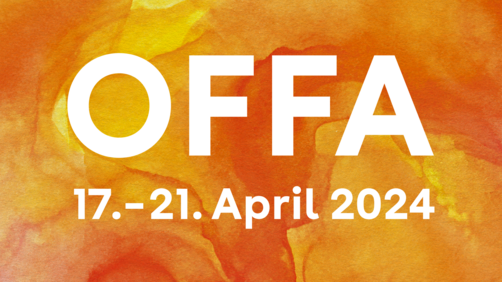Events - 28.10.2022 - 00:00
Metaverse and Web3 in focus at the Mobile Marketing and CX Conference 2022
Innovations and Future of Mobile Technologies in the Context of Metaverse and Web3 - was the topic of the sixth Mobile Marketing and CX Conference on October 25 in Zurich. More than 100 participants accepted the invitation of the Institute for Media and Communication Management from the University of St.Gallen and SWICO, the trade association of the ICT and online industry.

28 October 2022. The morning of this year's Mobile Marketing and CX Conference was dedicated to the topics of Metaverse, NFTs and Web3, as well as the future of mobile technologies. The keynote by Paul Wiedmeier from Meta used examples to show what the Metaverse can already do today and what future developments can be expected. He emphasized that the Metaverse is being jointly driven by many players and that "content creators" play a central role. Thomas Jordan from Swiss Post AG spoke positively about the first crypto (NFT) stamp. Matteo Panzavolta, founder and CEO of Authena, showed how NFTs and Digital Twins can be used in the fight against counterfeiting. Bedrija Hamza s described personal experiences in the Metaverse, for example, how one can whisper with neighbours at team meetings - in contrast to classic video calls - without bothering the others present. The participants then discussed the implications of these developments for mobile technologies in a World Café setting. Will "mobile first" continue to apply in the metaverse and Web3 in the future? The answer was a resounding yes. Mobile remains the primary access medium to much of the Web3's content and the primary link between real-world objects and "digital twins" in the Metaverse.
Metaverse: Potential for a mass phenomenon
The interactive workshop on push notifications then focused on automating them. "An app without push notifications misses the opportunity of a direct, proactive customer dialog," concluded Prof. Katarina Stanoevska-Slabeva, the moderator of the workshop and the conference. In parallel, the design of the metaverse was the topic of the second workshop. Mark Forster from Adello showed examples and figures of current Metaverse applications. In particular, he called for not having excessive expectations when experimenting: The metaverse is still in an early phase of development. Individual examples of digital concerts with an audience of millions or successful advertising campaigns should not obscure the fact that it is currently only used by absolute first movers and is not yet a mass phenomenon. But it has the potential to become one. Until then, it makes sense for companies to build up competencies in order to be ready when the technology shift begins.
Innovative apps and mobile CSR communication
How do you run an ecosystem with an app while creating customer-friendly user experiences? Andreas Bleuler, Chief Digital & Information Officer of the Weissen Arena Group Laax, as well as Loredana Manniello and Jonas Lutz from the start-up Fairtiq, used concrete examples of experience to show what the critical success factors are when orchestrating companies in an ecosystem. In addition to generating added value for all stakeholders involved, gamification elements, for example, can also help establish an app as a central point of contact. Partick Franco from St. Galler Kantonalbank used the example of the children's app "MiniBank" to present what is important when designing customer experiences for the particularly young target group of 7 to 13 year-olds. The founders of the start-up "Danks" showed their app, which turns fans of a brand into microinfluencers and rewards them for this with vouchers and special deals.
The conference concluded with a presentation by Prof. Katarina Stanoevska-Slabeva and Maximilian Schacker on their research into corporate social responsibility (CSR) communication in social media. They showed how companies can find the right balance between information needs and greenwashing accusations, and how they can consider both strategic and ethical aspects in their communication.
The MCM-HSG would like to thank the co-organizer SWICO and media partner Inside-IT for their valuable support.
Photo: About 100 professionals from business and academia attended this year's Mobile Marketing and CX Conference in Zurich.
More articles from the same category
This could also be of interest to you
Discover our special topics
















